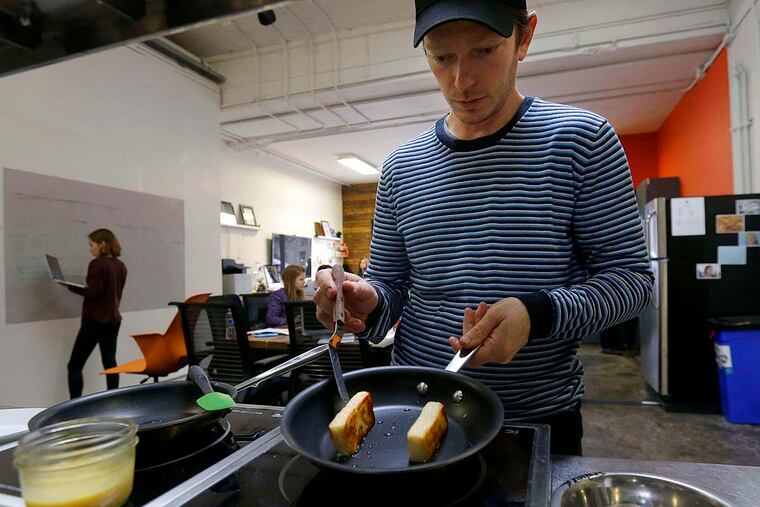Meatless, the next generation
NEW YORK - Patrick Brown is on an improbable mission: Make a burger Americans love, minus the meat. Veggie patties have been around for decades, but Brown and others want to make foods without animal products that look, cook and taste like the real thing - and can finally appeal to the masses.

NEW YORK - Patrick Brown is on an improbable mission: Make a burger Americans love, minus the meat.
Veggie patties have been around for decades, but Brown and others want to make foods without animal products that look, cook and taste like the real thing - and can finally appeal to the masses.
"We are not making a veggie burger. We're creating meat without using animals," said Brown, a former Stanford scientist who has been scanning plants in search of compounds that can help recreate meat.
Brown's company, Impossible Foods, is part of a wave of startups aiming to wean Americans off foods such as burgers and eggs, and their efforts are attracting big-name investors such as Bill Gates, Google Ventures, and tens of millions of dollars.
Other companies in the evolving category include Beyond Meat, Modern Meadow, and Hampton Creek. The goal is to lessen the dependence on livestock for food, which they say isn't as healthy, affordable, or environmentally friendly as plant-based alternatives.
The challenge is that most Americans happily eat meat and eggs. That means that, without a breakthrough, those seeking to upend factory farming risk becoming footnotes in the history of startups.
In its office in Southern California, Beyond Meat is working on just such a breakthrough with "chicken" strips made with pea and soy proteins that have been sold at such places as Whole Foods since 2012.
To form the strips, a mixture is pressed through a machine that forms and sets the product's texture with heating and cooling chambers. The method isn't new in the world of fake meats, but the company says it fine-tuned the process to deliver a more realistic offering.
Company founder Ethan Brown concedes that the product needs work but dismisses the idea that fake meat might weird people out and says it's a "desirable evolution" for food.
But it still has a way to go. The Huffington Post has described the startup's strips as having an "unpleasant" taste that inhabits a "strange territory between meat and vegetable."
At Impossible Foods, based in Redwood City, Calif., the patty is made by extracting proteins from foods such as spinach and beans, then combining them with other ingredients.
The 100-employee company expects the product to be available in the latter half of next year, initially through a food-service operator.
Few have tasted it, but the vision continues to gain traction. In October, Impossible Foods said it raised $108 million in funding, on top of its previous $74 million. Among its investors are Bill Gates, Google Ventures, and Horizons Ventures.
Another startup isn't totally ditching the cow.
With $15.5 million in funding, Modern Meadow in New York City takes cells from a cow through a biopsy and cultures them to grow into meat. At a conference in February, company founder Andras Forgacs likened the process to culturing yogurt or brewing beer.
Modern Meadow - which doesn't have a product on the market yet, either - says it doesn't necessarily want to replicate steaks and burgers. The company gave a hint of the type of foods it might make by presenting "steak chips" for attendees at a small conference last year. Only about 200 people have tried the chips, which Forgacs describes as "crispy, crunchy beef jerky."
In San Francisco, Hampton Creek's mission is to replace the eggs in products without anyone noticing. In trying to appeal to the mainstream, co-founder and CEO Josh Tetrick has a simple rule: Never use the word "vegan."
To avoid perceptions that its eggless spread Just Mayo won't taste good, Hampton Creek even removed the V-word from the label. What makes the product different, Tetrick says, is that it tastes better and costs less - not that it's made with a protein from a Canadian yellow pea instead of eggs.
"The egg-free thing is almost irrelevant," he said.
So far, Hampton Creek has attracted $120 million in funding. It continues to screen plants for compounds that can help replace eggs in recipes and plans to eventually introduce a scrambled-egg product.